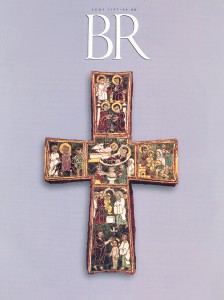Every other spring for the last dozen years I have taught an undergraduate course:
English 361
The Bible as Literature: New Testament
Spring Semester. 3 hrs
In teaching this course, I have discovered that the best thing that could happen to the New Testament has happened to it. Within the university, at least, the New Testament has become simply another “great book.” Though the text may have suffered a loss in religious status, it no longer has to carry the immense load of belief and commitment and guilt with which it was once burdened.
Having been raised a Christian, and a Catholic, I consider this a kind of liberation. I no longer have to search the Gospels for scenes in which Jesus creates the papacy or “institutes” the sacraments—holy matrimony, for instance, by his appearance at the wedding in Cana. And the college students themselves have changed. When I began teaching in the Midwest more than 40 years ago, Protestants came to class with a good grasp of the gospel narrative and the Old Testament stories it assumes. Catholic students were less informed, but could be counted on for passages generally read at mass. Today, only the fundamentalists are familiar with anything in the Bible. But as the children of parents who have deliberately resisted the influence of modern American culture and science, they cannot honestly engage in historical study of what they take to be an inerrant, timeless text.
On dropping my course, one student said to me, “Mr. Beeching, I just can’t stand listening to you.”
Already a library member? Log in here.
Institution user? Log in with your IP address.

